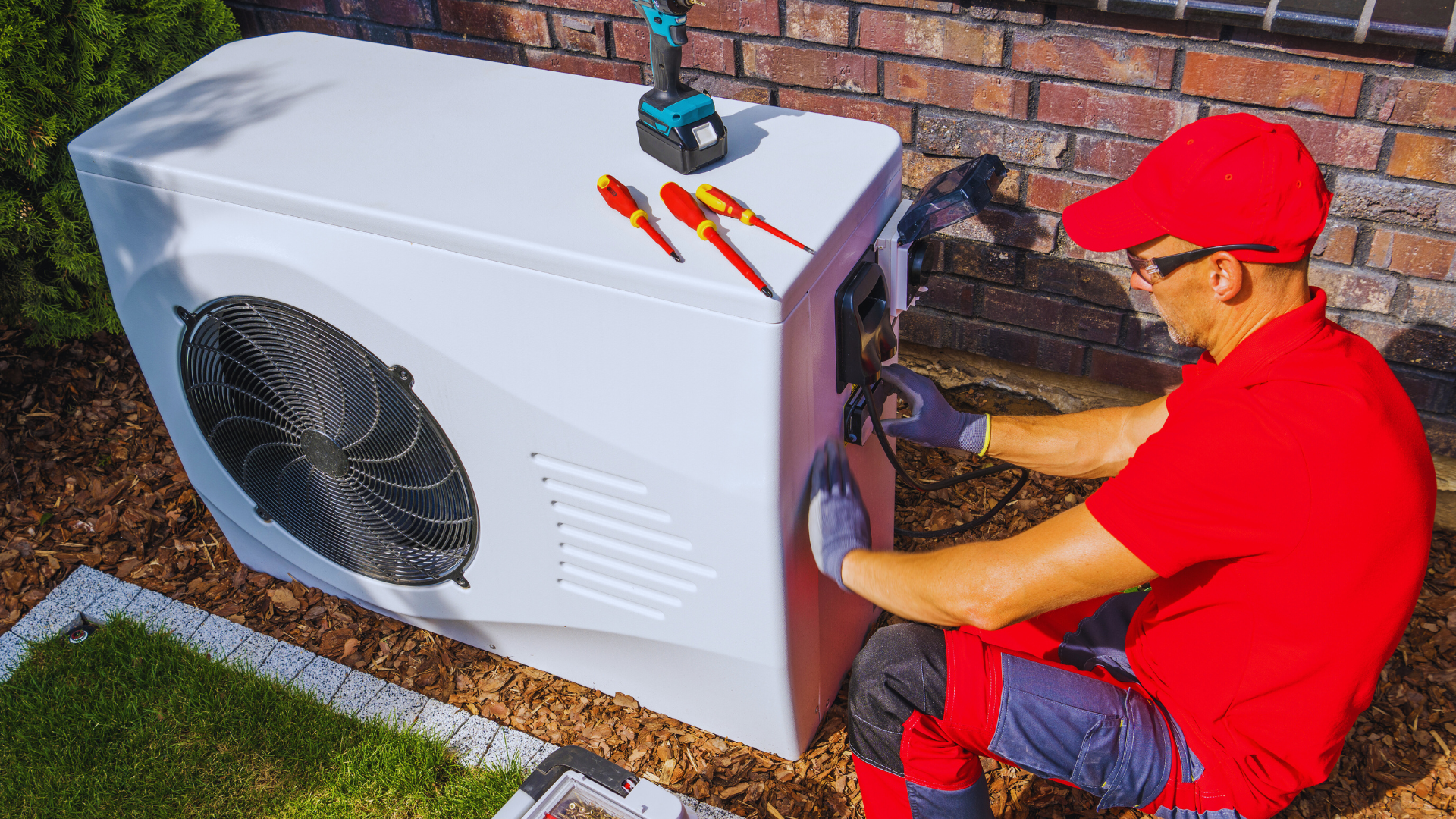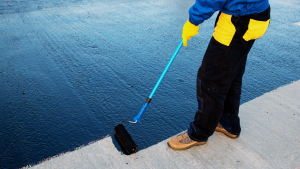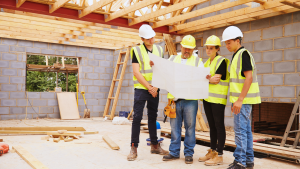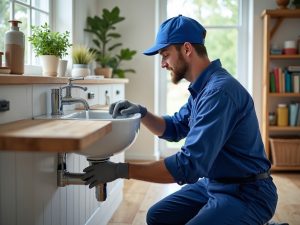Routine maintenance of an HVAC system is essential for ensuring its efficiency and longevity. Regular checks can significantly improve energy efficiency, reduce utility bills, and enhance indoor air quality. By taking proactive measures, homeowners can avoid costly repairs and enjoy a comfortable living environment year-round.
To keep an HVAC system running efficiently, it’s important to perform regular maintenance tasks such as changing air filters, cleaning ducts, and scheduling professional inspections with trusted experts like Metro Plumbing Heating & Air or similar providers. These steps help ensure optimal performance while maintaining healthy indoor air, free from allergens and pollutants.
Understanding the importance of HVAC maintenance can motivate individuals to take action. By prioritizing these practices, they can ensure their systems operate effectively while creating a more comfortable home atmosphere.
Understanding Your HVAC System and Maintenance Needs
An HVAC system consists of several key components that require regular maintenance to function effectively. Proper care ensures efficient operation and extends the lifespan of the system, reducing costly repairs and preserving air quality.
Components of an HVAC System
An HVAC system is composed of several essential components, including:
- Thermostat: The control center that regulates temperature settings.
- Filters: These trap dust, dirt, and allergens, maintaining air quality and system efficiency. Regularly replacing filters is crucial for optimal airflow.
- Evaporator Coils: Responsible for cooling the air, these coils must be clean to perform efficiently. Dirt accumulation can hinder cooling performance.
- Heat Exchanger: This component transfers heat between air and refrigerant. Damage can lead to inefficiency or unsafe conditions.
- Condensate Drain: This removes moisture from the system. A blocked drain can cause water damage and promote mold growth.
Understanding the function of each component can help identify maintenance needs.
Importance of Regular Upkeep
Regular maintenance is vital for ensuring the HVAC system operates smoothly. Preventative maintenance can catch potential issues early, which can save both time and money.
Key practices include:
- Replacing Filters: Doing this every 1-3 months can improve airflow and indoor air quality.
- Cleaning Evaporator Coils: This should be done at least once a year to prevent energy loss.
- Checking the Heat Exchanger: Regular inspections can catch cracks or deterioration, which is essential for safety.
- Clearing the Condensate Drain: This prevents clogs and leaks, safeguarding the property.
Scheduling maintenance twice a year—once in spring and once in fall—can ensure readiness for peak heating or cooling seasons.
Performing Basic HVAC Maintenance
Regular maintenance of HVAC systems is essential for optimal performance. This includes tasks such as replacing air filters, cleaning vents and evaporator coils, and inspecting the condensate drain line. These actions improve energy efficiency and extend the system’s lifespan. However, sometimes minor DIY maintenance isn’t enough. When more complex problems arise, seeking professional AC repair services would be a reliable choice. Their certified technicians can diagnose and fix issues that can significantly affect cooling performance. By combining regular upkeep with expert repair support, HVAC systems can remain reliable, efficient, and long-lasting.
Replacing Air Filters
Air filters play a crucial role in maintaining indoor air quality and system efficiency. A clogged filter restricts airflow, making the HVAC unit work harder and increasing energy consumption.
Filters should be checked monthly and replaced every 1 to 3 months, depending on usage and type. Standard disposable filters are affordable, while washable filters can be cleaned and reused.
To replace a filter:
- Turn off the HVAC system.
- Locate the filter compartment—usually near the air handler or return vent.
- Remove the old filter and insert the new one, ensuring the arrow on the filter points in the correct direction.
Cleaning Vents and Evaporator Coils
Cleaning the vents and evaporator coils maintains airflow and efficiency. Dust and debris can accumulate, obstructing airflow and reducing performance.
To clean vents:
- Turn off the HVAC system.
- Remove vent covers and vacuum the ducts using a brush attachment.
- Wipe covers with a damp cloth before reattaching.
Cleaning the evaporator coils involves gently removing dirt buildup. This can be done with a soft brush or cloth. Keeping coils clean is important because it allows for better heat exchange, reducing energy costs.
Inspecting the Condensate Drain Line
The condensate drain line is responsible for directing moisture away from the HVAC system. A clogged line can cause water damage and potentially lead to mold growth.
To inspect the drain line:
- Locate the drain line, typically a PVC pipe connected to the air handler.
- Check for leaks or blockages.
- Use a wet/dry vacuum to clear any backups.
Regular inspections ensure smooth drainage and help maintain a healthy indoor environment. It’s advisable to conduct this inspection at least twice a year to avert potential issues.
Optimizing HVAC Efficiency and Safety
Maintaining HVAC efficiency and safety is crucial for comfort and cost savings. Engaging in regular maintenance practices can significantly reduce energy costs, enhance system performance, and prevent costly repairs.
Tuning for Energy Efficiency
A well-tuned HVAC system operates smoothly and efficiently. Regular tune-ups, ideally twice per year, can reduce energy bills by optimizing performance.
During a tune-up, a professional technician will:
- Clean or replace air filters to ensure unrestricted airflow.
- Calibrate thermostats for accurate temperature control.
- Lubricate moving parts to minimize friction and wear.
Using programmable thermostats can further enhance efficiency by adjusting the temperature based on occupancy. Properly tuned systems reduce energy consumption and extend the lifespan of heating and cooling units.
Checking Refrigerant Levels and Gas Pressure
Refrigerant levels and gas pressure are critical for proper HVAC functionality. Low refrigerant can lead to decreased efficiency and increased energy costs.
Technicians should routinely check levels according to manufacturer specifications. Too little refrigerant can cause the system to overheat and malfunction. Similarly, maintaining the right gas pressure is vital for safe operation.
Both low refrigerant and incorrect gas pressure can lead to:
- Increased energy bills.
- Higher wear on system components.
- Potential safety hazards.
Routine maintenance can identify these issues early, preventing costly repairs and ensuring safe operation.
Ensuring Proper Safety Measures
Safety is paramount when operating and maintaining HVAC systems. Routine inspections should focus on detecting gas leaks and ensuring ventilation integrity.
Key safety measures include:
- Keeping outside air intakes clear of debris.
- Regularly inspecting flue pipes for proper function.
- Checking carbon monoxide detectors to ensure functionality.
Routine professional maintenance includes safety checks that help address these concerns. Ensuring systems operate safely enhances comfort and prevents dangerous situations. Investing in safety measures protects both the occupants and the property.




